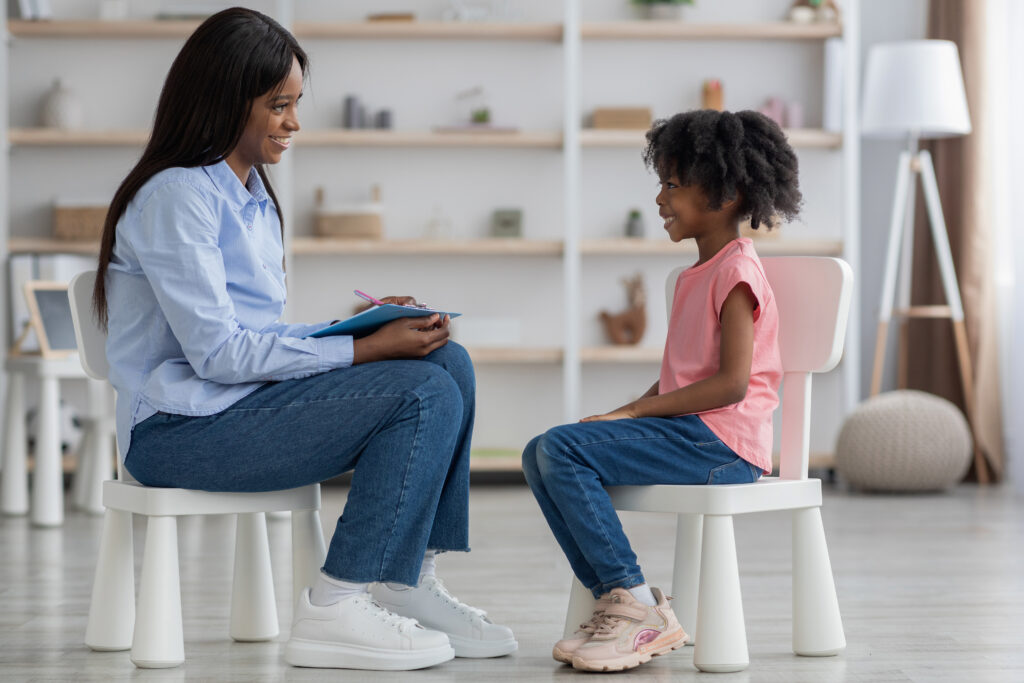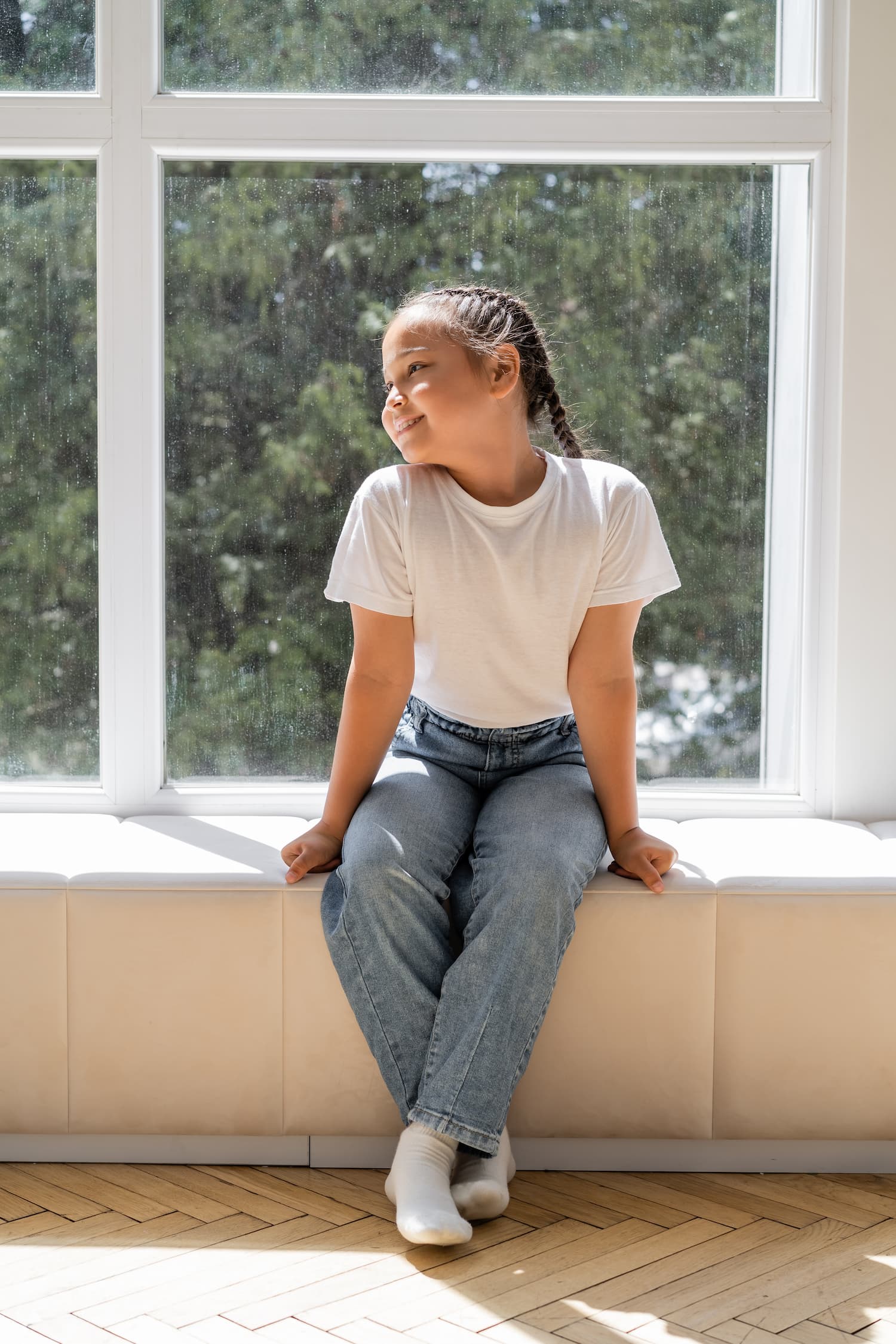
Therapy Services for Children in Family Court
CLC’s Clinical Program
The Clinical Program of the Children’s Law Center (CLC) provides evidence-based, trauma-informed psychotherapy for children and teens who are current or former CLC clients, as well as other children involved in Family Court proceedings.
Our services are designed to support young people experiencing or who have witnessed:
- Domestic violence and/or sexual abuse
- Problematic or concerning behaviors at home or school
- Suicidal thoughts or ideation
- Symptoms of post-traumatic stress (PTSD)
- Depression or anxiety, especially related to court orders

The benefits of therapy
Research shows that therapy can make a real difference for children and teens who have lived through trauma. Approaches like Trauma-Focused Cognitive Behavioral Therapy (TF-CBT) are proven to lower symptoms of PTSD, depression, and anxiety, while helping kids manage emotions, improve behavior, and feel more secure in environments that may change or otherwise feel out of control. When children get help sooner, they’re more likely to recover and do better at home, in school, and in relationships.
In New York, there are programs that offer trauma-informed care but access to them isn’t always easy.
Families may face long waitlists, language barriers, or gaps in services.
This is why the Children’s Law Center created its Clinical Program. Children involved in Family Court often face extra layers of stress and uncertainty. By offering therapy directly, we can address both the legal challenges and the emotional impact, giving kids a safe space to heal and build resilience.
What services are available?
For suicidality: Brief Cognitive Behavioral Therapy for Suicide (BCBT for suicide) may be offered
Languages: English and Spanish
Primary treatment: Trauma-Focused Cognitive Behavioral Therapy (TF-CBT), a leading, research-backed therapy for children, teens, and adults coping with PTSD, depression, anxiety, dissociation, or other trauma-related symptoms
How does the program work?
Screening and Assessment
Every client begins with an initial screening. Staff then assess individual symptoms, circumstances, and preferences to create a tailored therapy plan.
Individualized Therapy
Therapy sessions are adapted to meet each child’s unique needs. Standardized assessments are used to track progress and outcomes over time.
Important Note
The Clinical Program does not provide psychiatric assessments for Family Court proceedings.
Family Involvement
Parents or guardians may be included in therapy after careful assessment of the child and consultation with both the child’s and the parent’s attorneys.
How might children cope with family court-related stressors?
For children who are anxious or distressed about visiting a parent/guardian or participating in court, the Clinical Program offers brief consultations focused on practical coping skills.
In these sessions, children learn techniques for managing stress and anxiety. The sessions help children prepare for specific situations, like testifying in court or supervised parent visits so they feel more in control. These consultations are available even for children who do not need or want ongoing therapy.
Confidentiality
The Clinical Program helps children and teens build resilience, confidence, and coping skills in a safe, supportive environment.
Confidentiality is a top priority. Information from therapy sessions is never shared with Attorneys for Children (AFCs), other CLC staff, or outside parties without the child’s consent.
Who is eligible for CLC’s clinical program?
Our referral criteria is inclusive.
Who is eligible: Children and teens in New York City ages 3 to 18 who are currently or were formerly involved in Family Court proceedings and are experiencing trauma-related stress, anxiety, depression, behavioral concerns, or other challenges described above.
Priority given to: Current and former CLC clients.
